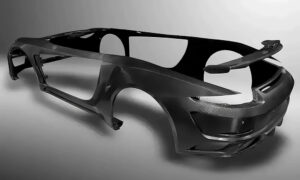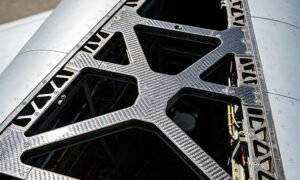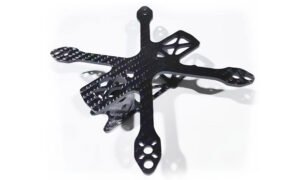Exploring the Benefits of Carbon Fiber BMC Bulk Molding Compound in Modern Manufacturing
In the rapidly evolving landscape of modern manufacturing, engineers and designers are constantly seeking materials that offer superior performance, lightweight properties, and cost-efficiency. Among the various composite materials available, Carbon Fiber Bulk Molding Compound (BMC) has emerged as a game-changer. But what exactly is BMC, and how does it benefit modern manufacturing processes? Let’s delve into these questions and explore the advantages of this innovative material.
What is Carbon Fiber BMC?

Carbon Fiber BMC, or Bulk Molding Compound, is a composite material that combines carbon fibers with a thermoplastic matrix. This mixture is processed into a moldable paste, which can be easily shaped into complex components. The result is a material that combines the strength and stiffness of carbon fiber with the workability of a thermoplastic.
Why Choose BMC Over Traditional Materials?
One of the primary questions manufacturers ask is why they should choose BMC over traditional materials like metal or conventional composites. The answer lies in its unique properties. Unlike metals, BMC is significantly lighter, reducing weight without compromising strength. Additionally, BMC offers excellent thermal stability and electrical insulation, making it ideal for a wide range of applications.
The Benefits of Carbon Fiber BMC
Enhanced Strength and Durability
One of the most compelling reasons to use BMC is its exceptional strength-to-weight ratio. Carbon fibers provide unparalleled tensile strength, allowing components to withstand heavy loads and harsh environments. This makes BMC an excellent choice for automotive, aerospace, and industrial applications where durability is paramount.
Lightweight Properties
Weight reduction is a critical factor in many industries. BMC’s lightweight nature not only improves fuel efficiency in vehicles but also reduces the overall weight of machinery, leading to less wear and tear on moving parts. This advantage is particularly valuable in industries where every gram counts.
Cost-Effective Manufacturing
Despite its high-performance properties, BMC is surprisingly cost-effective. The material’s ability to be processed using conventional injection molding techniques lowers production costs compared to other composite materials that require specialized equipment. This makes BMC an attractive option for manufacturers looking to balance performance and budget.
Design Flexibility
BMC offers remarkable design flexibility. Its moldable nature allows for the creation of complex geometries and intricate details that would be difficult or impossible to achieve with other materials. This flexibility enables engineers to optimize component designs for maximum performance.
Fast Production Cycles
Another significant advantage of BMC is its fast production cycle. The material can be molded quickly, reducing lead times and increasing overall productivity. This speed-to-market is crucial in today’s competitive manufacturing environment.
Real-World Applications
The versatility of BMC is evident in its wide range of applications. In the automotive industry, BMC is used to manufacture lightweight body panels and structural components. Aerospace manufacturers rely on BMC for high-performance parts that withstand extreme temperatures and pressures. Industrial applications include durable components for machinery and equipment.
Sharing Insights: A Case Study
Let’s consider a case study from the automotive industry. A leading car manufacturer decided to use BMC for the production of interior trim components. The result was a significant reduction in weight, leading to improved fuel efficiency and a more comfortable ride. Additionally, the components exhibited excellent durability, meeting stringent safety standards. This success story demonstrates BMC’s potential to revolutionize manufacturing processes.
Conclusion
Carbon Fiber BMC offers a multitude of benefits that make it a superior choice for modern manufacturing. Its combination of strength, lightweight properties, cost-effectiveness, design flexibility, and fast production cycles positions it as a material of the future. As industries continue to evolve, BMC will undoubtedly play a crucial role in driving innovation and efficiency.
By exploring the advantages of Carbon Fiber BMC, manufacturers can unlock new possibilities and stay ahead in an ever-competitive market. Whether you’re in automotive, aerospace, or industrial manufacturing, BMC provides the performance and versatility needed to meet the demands of today and tomorrow.








